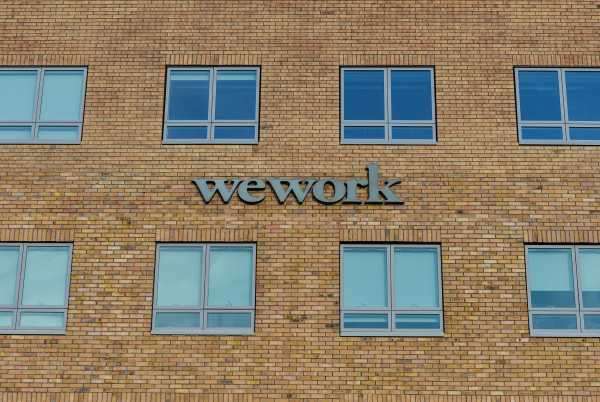
This story is part of a group of stories called

Uncovering and explaining how our digital world is changing — and changing us.
A year and a half after its failed IPO attempt, WeWork is finally going public. Instead of trying a traditional IPO again, the troubled coworking outfit is using a different financial maneuver: merging with a special purpose acquisition company, known as a SPAC. The deal, which values WeWork at $9 billion including debt, represents a bit of closure for a company that has had a roller coaster few years, going from a tech darling valued at $47 billion to a cautionary tale. It also highlights just how frenzied the SPAC rush has become.
The Wall Street Journal first confirmed on Friday that the company is merging with BowX Acquisition, sponsored by SPAC Bow Capital Management and run by Sacramento Kings owner and Tibco Software founder Vivek Ranadivé. In a way, WeWork is the quintessential SPAC candidate: It’s a high-profile company that has had difficulty going public otherwise. It’s also operating in the buzzy coworking industry: WeWork essentially leases office real estate, makes it look cool, and then subleases that property to companies and individuals looking to rent for the short term.
There are mixed signals for the company’s financial outlook. On one hand, WeWork and other shared office space companies could thrive post-pandemic as businesses rethink their traditional office leases and opt for more flexible solutions. On the other, WeWork posted a loss of nearly $4 billion last year and about the same in 2019. BowX Acquisition is currently trading at $10.72 — more than the standard $10 that SPACs go public at and a sign that this could be a popular acquisition. However, it had traded below $10 earlier when the WeWork merger had already been speculated.
Related
10 ways office work will never be the same
SPAC mergers, like the one between WeWork and BowX Acquisition, are an increasingly popular way for companies to go public. This year is on track for a record number of SPAC companies listing on the stock market. The Journal reported that nearly 300 SPACs have gone public so far in 2021, raising $93 billion. In most years, that’s more than the annual total for IPOs, both traditional and SPAC. Just this morning, the Wall Street Journal also reported that media startups Axios and the Athletic are hoping to merge and go public via a SPAC.
Wait, what are SPACs again?
SPACs are shell companies that go public with the express purpose of raising money to buy private companies — effectively bringing private companies public much faster than if they were to do a traditional IPO.
To be successful, a SPAC needs to merge with a private company within two years or return investors’ money. A share of a SPAC typically costs $10, and buyers are allowed to get their money back if they don’t like the eventual merger. That means they are a relatively safe investment if people buy them around that price. However, a slew of recent SPACs traded much higher. The SPAC that purchased electric car company Lucid traded higher than $60 before announcing the merger, after which the price precipitously declined.
And SPACs have seen increased demand because of an influx of retail investors — regular people investing in companies through apps like Robinhood. While this trend democratizes access to the stock market, critics say it’s also democratizing the ability to lose lots of money. Post-merger SPACs have historically underperformed regular IPO stocks. An index of SPACs, which reached a peak in February, has seen a selloff in recent days in anticipation of more scrutiny by the US Securities and Exchange Commission.
The flurry of SPACs — many of them led by high-profile sponsors and even celebrities —means there’s lots of money out there with which to merge with private companies — more perhaps than there are good companies to buy.
As University of Florida professor and IPO expert Jay Ritter told Recode recently, “There’s now so much money chasing deals, it’s going to be harder and harder to pull off attractive mergers.”
Millions turn to Vox to understand what’s happening in the news. Our mission has never been more vital than it is in this moment: to empower through understanding. Financial contributions from our readers are a critical part of supporting our resource-intensive work and help us keep our journalism free for all. Help us keep our work free for all by making a financial contribution from as little as $3.
Sourse: vox.com





